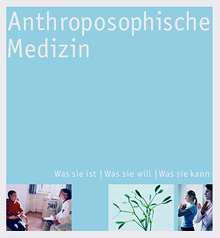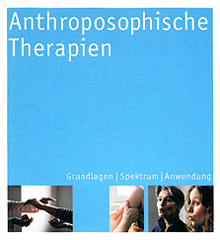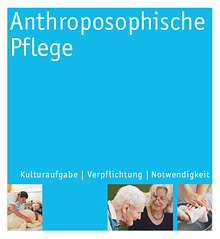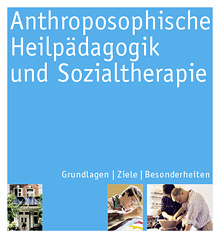

Anthroposophic Medicine
Integrated, unique, timely
Anthroposophic Medicine is an integrative approach to medicine that continually feeds from three sources that work inseparably within it: 1) conventional scientific medicine with its methods and results; 2) a holistic understanding of nature; 3) a spiritual scientific knowledge of the nature of the human being in body, soul and spirit. For anthroposophic doctors, the life of the body and the soul together with the human individuality form a unity within which they influence each other. To take this whole organization into account in diagnosis and therapy is one of the essential foundations of Anthroposophic Medicine.
Integrative, not alternative
This is not an ‘alternative medicine’ that intends on replacing conventional medical practice. On the contrary, it rests on a conventional scientific basis, but then goes further. This means that it holds as useful all knowledge derived from scientific research, and includes a modern naturopathic approach to medicines from nature. In addition it encompasses a view of each human being, according to principles of human development, as a whole personality with distinct and essential biographical characteristics. It seeks thus to discover how the general laws of disease manifest and proceeds in relation to each person’s particular characteristics. This is because every person is unique as well as each treatment, even though they may be similar in many people.
Anthroposophic medicine explores the physical, but also to the psychological and personal conditions that have paved the way for specific pathogenic factors. To recognize this and implement therapy anew with each patient accordingly, led by scientific evidence, physician experience, personal judgment and intuition, is an important characteristic of Anthroposophic Medicine.
Anthroposophic medicine uses therapeutic procedures that the patient passively receives (operations, medicines, massages, etc.) as well as methods that involve patients as active agents in their own therapies. These include, above all, the artistic therapies such as speech therapy, music, painting, plastic arts and eurythmy, discussion therapy (psychotherapy, biographical work), diet, exercise, physical therapy and relaxation techniques.
Drug therapy comprises the administration of anthroposophic, homeopathic and naturopathic medicines that incorporate natural ingredients whose composition is determined by the typical characteristics of a disease. Remedies are also given that are geared to the individual characteristics of the patient.
Modern and contemporary
Anthroposophical medicine is so timely because it takes into account the person comprehensively, in his or her whole personality. Patients today do not want to only be reduced to their disease – they want to be respected as partners with the physician and incorporated as such into their own therapy.
At a time when more and more individual responsibility and initiative on the part of each patient and person within the health system is required, a medicine that takes this task seriously and approaches it methodically is a social necessity.
At a time when, despite our pluralistic society, there is a general and increasing trend towards standardization and normalization, there is a stronger need than ever before for a medicine that can differentiate and recognize, as central to its purpose, the comprehensive power of the individual person.
This is precisely why Anthroposophic Medicine is so necessary and relevant today. It is a medicine that puts the patient in a position to decide which therapeutic approach corresponds to them in order to help overcome their disease and as an opportunity for their own self-development.
Detailed information can be found in the brochures available for download in the adjacent column.












